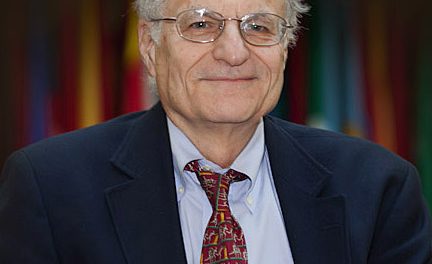Student Government Association (SGA) President Rachel Ding (20Ox, 22B) intends to have a new executive vice president appointment confirmed by the legislature by the end of the month. The vacancy was created by the resignation of Amon Pierson (22C) in late August who cited mental health concerns.
Pierson was elected alongside Ding in a second election last spring after the Constitutional Council ruled that the opposing ticket violated the election code.
There is no clear established procedure in SGA governing documents for what to do if the executive vice president resigns, which caused confusion for Ding and SGA Speaker Joseph Banko (23C) regarding how to proceed.
Pierson informed Ding of the planned resignation at the end of the spring term. Under the current SGA code, however, even a temporary appointment requires approval from the legislature, which is not in session over the summer.
Before consulting with Lisa Loveall, the director of the Student Involvement, Leadership and Transitions office, Banko was prepared to step into the role, as per the order of succession for the SGA president. But this order is only used in replacing the president temporarily and cannot be applied to the post of executive vice president.
“We assumed that the same line of succession applied to the VP position,” Banko said. “We realized there isn’t really any guidance that our governing documents offer us in a situation like this.”
Under the SGA code, the president is granted the authority to have emergency appointments for positional vacancies, although the appointment must be confirmed by an unspecified majority of the legislature. The code additionally stipulates that such an appointment must be presented in a bill to the Speaker prior to the “next regularly scheduled legislative session,” which is on Sept. 13.
However, Ding said this timeline is not ideal, as it would mean “essentially just picking someone.”
“[Loveall] suggested we go through a regular cabinet process where I actually interview people and they apply,” Ding said.
Ding plans to release applications for the executive vice president post and other SGA positions after the first-year representative election cycle, which concluded on Sept. 6.
The process being followed is that of an emergency appointment, Ding said. Unlike typical emergency appointments, the selection for the new executive vice president position would not be temporary.
“Emergency Appointments do not completely encompass an EVP replacement because there will not be a temporary appointment followed by a permanent appointment,” Ding wrote in a Sept. 7 email. “If the bill is not submitted before the next legislative session, it simply means that the temporary appointment is no longer valid. Therefore, regardless of when the bill is submitted … , the formal confirmation of the office of Vice President will still be permanent.”
If a new process for the replacement of an executive vice president is created, Ding plans for it to be made in addition to and not in replacement of existing emergency appointment procedures.
“We can only follow these proceedings because there are no others to follow,” Ding said.
Ninad Kulkarni (he/him) (22C) is from Hyderabad, India, majoring in economics and mathematics. You can catch him cheering for Bayern Munich and making poor attempts at playing sports.






